Photographs: Reuters Sachin P Mampatta and Sameer Mulgaonkar in Mumbai
In 2004, when rainfall was 13.8 per cent below LPA, the Sensex closed at a level 13.08 per cent higher than its level at the start of the year, write Sachin P Mampatta and Sameer Mulgaonkar.
A delayed monsoon has led to many a worried face this year and people fear this might cause a drop in agricultural output and push prices.
However, here is a piece of information to take heart from: Poor rains seldom translate into poor market returns.
A Business Standard analysis of data from the past two-and-a-half decades reveals, in each year that India has received deficient rainfall, the BSE Sensex level at the end has been higher than that at the beginning of the year.
The India Meteorological Department defines a deficient year as one in which the overall rainfall is 10 per cent short of the average of 50 years since 1951 (referred to as long-period average, or LPA).
Please . . .
Weak monsoon no dry spell for Sensex
Image: The Bombay Stock Exchange.Photographs: Reuters
In 2004, when rainfall was 13.8 per cent below LPA, the Sensex closed at a level 13.08 per cent higher than its level at the start of the year.
Similarly, in 2002, the monsoon was 19.2 per cent short, while the Sensex finished 3.52 per cent higher.
In 2009, there was a rainfall deficiency of 21.76 per cent but the BSE index rose 81.03 per cent.
There were four occasions in the past 10 years when the rainfall received by the country was less than LPA but not ‘deficient’ by IMD’s definition.
In three of these years, the market returns were positive -- an average 38.25 per cent, compared with the 10-year average of 20.53 per cent.
Please . . .
Weak monsoon no dry spell for Sensex
Image: According to market watchers and experts, the returns need not be co-related with the monsoon, unless there is a severe deficit, because other factors often override the impact of a weak rainfall.Photographs: Reuters
According to market watchers and experts, the returns need not be co-related with the monsoon, unless there is a severe deficit, because other factors often override the impact of a weak rainfall.
Motilal Oswal Financial Services Joint Managing Director Raamdeo Agrawal explains that the share of agriculture in the economy has declined over the years, so listed companies’ earnings are not too dependent on agriculture.
“Agriculture now contributes only around 13 per cent to the economy, so the impact of a deficient monsoon now will be much lower than 25 years ago.
“Companies’ earnings are more dependent on factors like investment cycle and how well the services segment of the economy is doing.”
Please . . .
Weak monsoon no dry spell for Sensex
Image: According to private weather forecaster Skymet, the total rainfall received by India in June this has been the least in the month in 10 years.Photographs: Reuters
Bharti AXA Life Insurance Chief Investment Officer Sandeep Nanda points out that election spending helped buoy the economy in two poor rainfall years in the past decade.
“In 2004, we had a global rally in addition to elections, while 2009 was also an election year.”
Both these years saw double-digit market returns.
Whether or not rains will have an impact on Sensex this year will depend on how bad the overall monsoon is, says Nanda.
According to private weather forecaster Skymet, the total rainfall received by India in June this has been the least in the month in 10 years.
“If this does turn out to be a year of poor rainfall, the government’s policy-making will also see an impact. . . It could focus on dealing with the problems created by a low rainfall and postpone hard decisions so that the problems people are facing are not increased.
“That might slow down the reforms momentum,” he says.
Please . . .
Weak monsoon no dry spell for Sensex
Image: IMD has said the deficit so far can be bridged by an above-normal rainfall in July.Photographs: Reuters
IMD has said the deficit so far can be bridged by an above-normal rainfall in July.
K R Choksey Securities Managing Director Deven Choksey, too, is hopeful of a recovery in rains next month.
“Unless we have a drought-like situation, there will not be a major impact on the markets.
"In the case of the current year, we may see a large amount of rainfall in July; that will cover the deficit.”
So far this year, the Sensex has risen 18.56 per cent.
By comparison, rainfall deficit in June has been 40 per cent.
Please . . .
Weak monsoon no dry spell for Sensex
Image: At 32 per cent, July contributes the most to the total rains, August accounts for 29 per cent and September for a little over 19 per cent.Photographs: Reuters
Motilal Oswal’s Agrawal points out that June only accounts for around 18 per cent of the overall rainfall, so a 40 per cent deficit leaves a room for making it up in the months to come.
At 32 per cent, July contributes the most to the total rains, August accounts for 29 per cent and September for a little over 19 per cent.
“The market is also banking on the huge tailwind of an investment cycle and government action.
Even if there is a deficit at the end of the year and that has an impact on markets, you could see lower returns, not negative returns,” Agrawal adds.

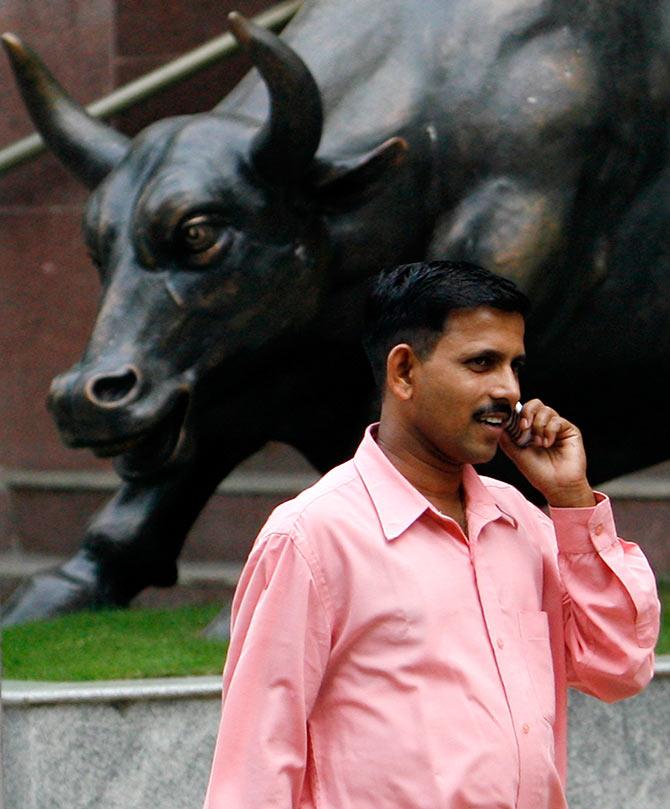
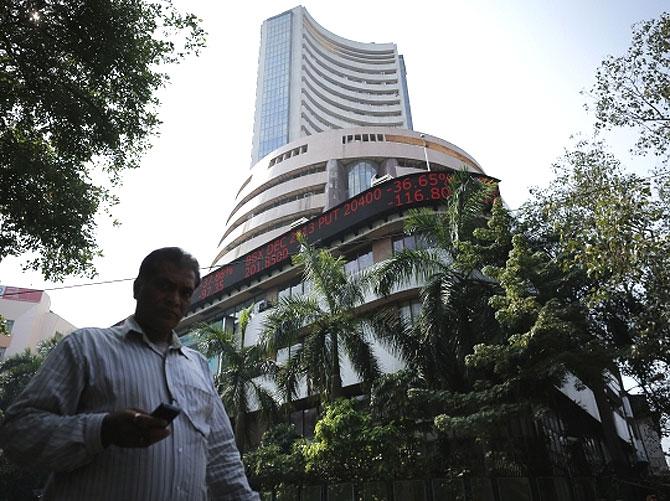
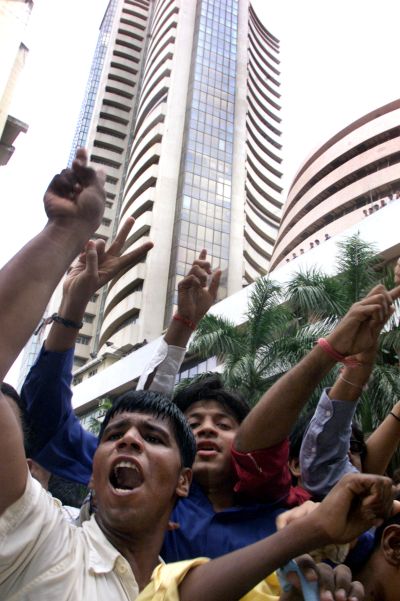
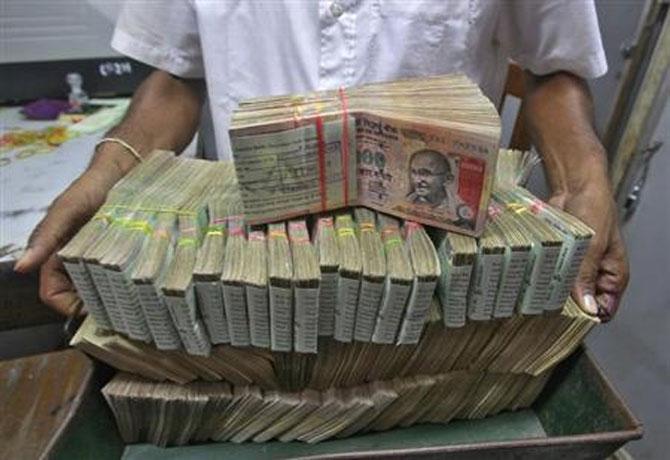
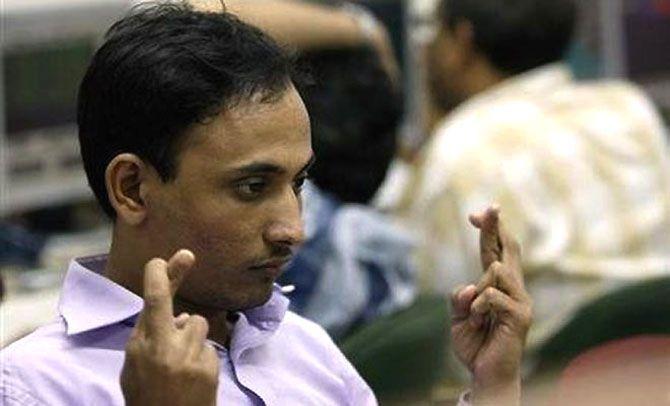
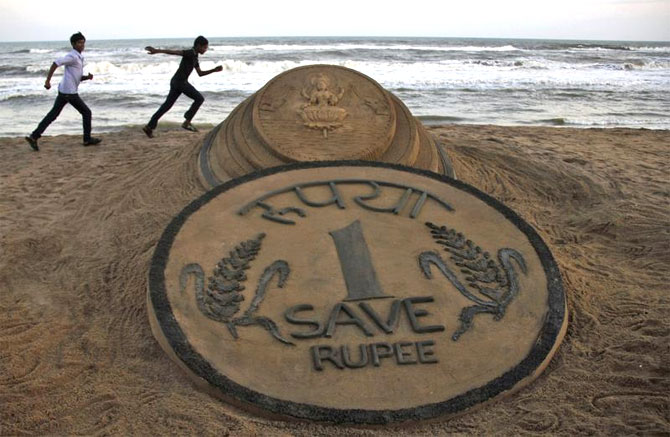

article